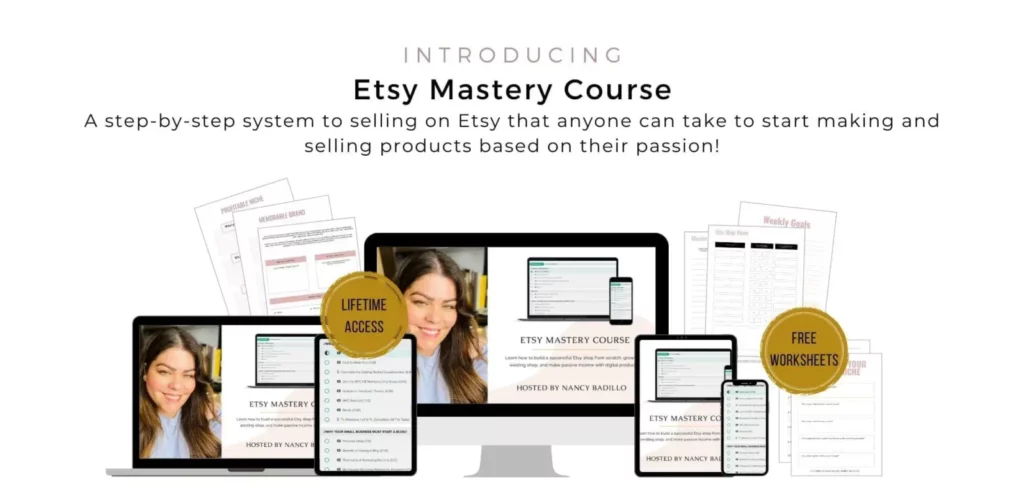Are you curious about what it takes to be an entrepreneur? Well, you’ve come to the right place! In this fast-paced world of startups and innovation, entrepreneurship has become a buzzword that everyone seems to be talking about. But what exactly is entrepreneurship? Simply put, it is the process of creating, building, and managing a business venture, with the aim of making a profit. But it’s so much more than that. It’s about having the courage to take risks, the ability to think outside the box, and the determination to overcome obstacles.
Entrepreneurship is a mindset that embraces challenges and thrives on innovation. It’s about turning ideas into reality and creating something meaningful in the world. Whether you dream of starting your own business or simply want to understand the world of entrepreneurship better, this article will guide you through the exciting journey of what it means to be an entrepreneur. So, let’s dive in and explore the fascinating world of entrepreneurship together!

This blog post is all about what is entrepreneurship.
Home > Lifestyle > What Is Entrepreneurship
DISCLOSURE: This is a sponsored post. Through my links, I may receive a commission if you decide to make purchases at no cost for yourself! Check out our disclaimer for more info on how it works.
Ready to embark on your Etsy business journey but unsure where to begin? Join our free masterclass, where we empower you to start, manage, and scale your Etsy business into a full-time income. With our guidance, 9,000+ individuals have found success, even without a social media presence or email list. Step into the world of Etsy entrepreneurship, and let us guide you to success. Join us now!
Table of contents
- Definition of Entrepreneurship
- Traits and Characteristics of Successful Entrepreneurs
- Importance of Entrepreneurship in the Economy
- Types of Entrepreneurship
- Steps to Becoming an Entrepreneur
- Challenges Faced by Entrepreneurs
- Benefits and Rewards of Entrepreneurship
- Conclusion: What Is Entrepreneurship
- Ready To Start An Etsy Business?
- New On The Blog
Definition of Entrepreneurship
Entrepreneurship can be defined as the process of identifying opportunities, taking calculated risks, and creating value through the development and management of a business venture. It involves the initiation, organization, and execution of an idea or concept, with the goal of achieving profitability and long-term success. Entrepreneurs are individuals who possess a unique set of skills, including creativity, innovation, leadership, and resilience. They are driven by a passion for their vision and are willing to overcome challenges and setbacks to achieve their goals. Entrepreneurship can take many forms, from starting a small business to launching a social enterprise or pioneering innovative technologies. It is a dynamic and ever-evolving field that plays a crucial role in driving economic growth and societal progress.
Entrepreneurs are not just business owners; they are change-makers who disrupt industries, introduce new products and services, and create jobs. They are driven by a desire to make a difference and leave a lasting impact on the world. Entrepreneurship is about challenging the status quo and finding innovative solutions to problems. It requires a willingness to take risks and step out of one’s comfort zone. Successful entrepreneurs possess a unique combination of skills and characteristics that set them apart from the rest. Let’s take a closer look at some of these traits.
Traits and Characteristics of Successful Entrepreneurs
Successful entrepreneurs possess a range of traits and characteristics that contribute to their ability to navigate the challenges and uncertainties of entrepreneurship. While everyone’s entrepreneurial journey is unique, there are some common traits that many successful entrepreneurs share.
1. Passion and Vision: Entrepreneurs are driven by a deep passion for their vision. They have a clear sense of purpose and are committed to making a positive impact in their chosen field. Their vision acts as a guiding star, helping them stay focused and motivated even in the face of obstacles.
2. Resilience and Perseverance: Entrepreneurship is rarely a smooth journey. It is filled with ups and downs, setbacks, and failures. Successful entrepreneurs possess the resilience and perseverance to keep going, even when things get tough. They view failures as opportunities for growth and learning, rather than as roadblocks.
3. Creativity and Innovation: Entrepreneurs are natural problem-solvers. They possess a creative mindset and are constantly seeking out innovative solutions to challenges. They are not afraid to think outside the box and challenge conventional wisdom.
4. Adaptability and Flexibility: The business landscape is constantly evolving, and successful entrepreneurs are able to adapt and pivot when necessary. They are open to change and are willing to adjust their strategies and plans to meet the demands of the market.
5. Risk-Taking: Entrepreneurship inherently involves taking risks. Successful entrepreneurs are comfortable with uncertainty and are willing to take calculated risks to pursue their goals. They understand that without risk, there can be no reward.
6. Strong Work Ethic: Entrepreneurship requires hard work and dedication. Successful entrepreneurs are willing to put in the time and effort required to build their businesses. They are self-motivated and possess a strong work ethic that drives them to go above and beyond.
7. Networking and Relationship Building: Building a successful business often requires collaboration and partnerships. Entrepreneurs understand the value of networking and relationship building. They actively seek out opportunities to connect with others in their industry and build mutually beneficial relationships.
These are just a few of the many traits and characteristics that contribute to the success of entrepreneurs. While not every entrepreneur possesses all of these traits, they can be developed and nurtured over time with the right mindset and approach.
Importance of Entrepreneurship in the Economy
Entrepreneurship plays a vital role in driving economic growth and development. It is the engine of innovation and job creation, spurring technological advancements and driving productivity gains. When entrepreneurs start new businesses, they create employment opportunities and contribute to the overall prosperity of a nation. Small and medium-sized enterprises (SMEs), often founded by entrepreneurs, are a major source of job creation in many economies.
Entrepreneurship also fosters competition and market efficiency. By introducing new products and services, entrepreneurs force established businesses to innovate and improve their offerings. This leads to increased consumer choice and better quality products and services. Additionally, entrepreneurship promotes economic diversification, reducing dependency on a single industry or sector. This diversification helps to make an economy more resilient and less susceptible to downturns.
Furthermore, entrepreneurship has a positive impact on local communities and societies as a whole. Entrepreneurs often give back by supporting social causes and investing in community development. They contribute to the growth of local economies, promote social mobility, and inspire others to pursue their own entrepreneurial dreams.
Types of Entrepreneurship
Entrepreneurship can take various forms, each with its own unique characteristics and objectives. Let’s explore some of the common types of entrepreneurship:
1. Small Business Entrepreneurship: This type of entrepreneurship involves starting and operating a small business. Small business entrepreneurs are typically driven by a desire to be their own boss and create a sustainable livelihood. They may offer products or services in a local market and focus on meeting the needs of their community.
2. Social Entrepreneurship: Social entrepreneurship involves using business principles to create positive social or environmental change. Social entrepreneurs are driven by a mission to address societal challenges and improve the well-being of communities. They may start nonprofits, social enterprises, or impact-driven businesses that generate both social and financial returns.
3. Innovative Entrepreneurship: Innovative entrepreneurship is about pioneering new ideas, technologies, and business models. Innovative entrepreneurs are disruptors who challenge existing norms and create groundbreaking innovations. They often leverage emerging technologies and trends to create products and services that revolutionize industries.
These are just a few examples of the different types of entrepreneurship. Each type has its own unique set of challenges and opportunities, but all contribute to the overall entrepreneurial ecosystem.
Steps to Becoming an Entrepreneur
Now that we have explored the definition, traits, and types of entrepreneurship, let’s delve into the practical steps you can take to embark on your own entrepreneurial journey. While every entrepreneur’s path is unique, there are some general steps that can help guide you along the way. Here is a suggested roadmap to becoming an entrepreneur:
1. Identify Your Passion and Purpose: Start by identifying your passion and purpose. What problem or opportunity do you want to address? What are you truly passionate about? Understanding your why will provide a strong foundation for your entrepreneurial journey.
2. Research and Validate Your Idea: Once you have identified your passion, it’s time to research and validate your idea. Is there a market demand for your product or service? Who are your potential customers? Conduct market research and gather feedback to ensure that your idea has the potential to be successful.
3. Create a Business Plan: A business plan is a roadmap that outlines your business concept, target market, competitive analysis, marketing strategies, and financial projections. It provides a clear direction for your business and helps you attract investors or secure funding if needed.
4. Develop Your Skills and Knowledge: Entrepreneurship requires a diverse set of skills and knowledge. Take the time to develop your skills in areas such as marketing, finance, leadership, and communication. Seek out training programs, workshops, and mentorship opportunities to enhance your expertise.
5. Build Your Network: Networking is a crucial aspect of entrepreneurship. Attend industry events, join professional organizations, and connect with like-minded individuals. Build relationships with mentors, advisors, and potential collaborators who can provide guidance and support along your journey.
6. Secure Funding: Depending on your business concept, you may need to secure funding to launch or grow your venture. Explore different funding options such as self-funding, loans, grants, or venture capital. Develop a strong business case and pitch to potential investors or lenders.
7. Launch and Iterate: Once you have completed the necessary preparations, it’s time to launch your business. Be prepared for challenges and setbacks along the way. Embrace a mindset of continuous improvement and iterate based on customer feedback and market trends.
8. Adapt and Scale: As your business grows, be prepared to adapt and scale your operations. Monitor market trends, analyze data, and stay ahead of the competition. Continuously seek opportunities for growth and expansion.
Remember, entrepreneurship is a journey, and success rarely happens overnight. Embrace the learning process, stay persistent, and be open to feedback and new ideas. With determination, resilience, and a passion for your vision, you can create a successful and impactful venture.
Challenges Faced by Entrepreneurs
While entrepreneurship offers many opportunities, it also comes with its fair share of challenges. It’s important to be aware of these challenges and prepare for them as you embark on your entrepreneurial journey. Here are some common challenges faced by entrepreneurs:
1. Uncertainty and Risk: Entrepreneurship is inherently risky. There are no guarantees of success, and entrepreneurs must be comfortable with uncertainty. They often face financial risks, market risks, and operational risks. It’s essential to have a contingency plan and be prepared to adapt to changing circumstances.
2. Limited Resources: Starting a business requires resources, including capital, talent, and infrastructure. Entrepreneurs often face challenges in securing funding, attracting skilled employees, and accessing the necessary tools and technology. It’s important to be resourceful and creative in finding solutions to overcome these limitations.
3. Competition and Market Saturation: In many industries, competition is fierce. Entrepreneurs must navigate crowded markets and find ways to differentiate their offerings. They need to develop a deep understanding of their target market and create a unique value proposition that sets them apart from competitors.
4. Time Management and Work-Life Balance: Entrepreneurship can be demanding, requiring long hours and intense dedication. Balancing work and personal life can be challenging, especially in the early stages of building a business. It’s important to prioritize self-care and establish boundaries to maintain well-being.
5. Scaling and Growth: Scaling a business can present unique challenges. Entrepreneurs must navigate operational complexities, manage increased demand, and ensure the scalability and sustainability of their business model. It’s important to plan for growth and have systems in place to support expansion.
6. Managing Failure and Setbacks: Failure is a natural part of the entrepreneurial journey. Entrepreneurs must be resilient and learn from their mistakes. It’s important to view failures as learning opportunities and pivot when necessary. Surrounding yourself with a supportive network can help you navigate setbacks and bounce back stronger.
While these challenges may seem daunting, they are also opportunities for growth and learning. Successful entrepreneurs embrace challenges as a chance to innovate and find creative solutions. By staying adaptable, persistent, and focused, you can overcome these challenges and achieve your entrepreneurial goals.
Benefits and Rewards of Entrepreneurship
Despite the challenges, entrepreneurship offers a range of benefits and rewards that make the journey worthwhile. Here are some of the key benefits of being an entrepreneur:
1. Independence and Autonomy: As an entrepreneur, you have the freedom to be your own boss and make decisions that align with your vision and values. You have the autonomy to shape your business according to your goals and preferences.
2. Financial Potential: While entrepreneurship comes with financial risks, it also offers the potential for significant financial rewards. Successful entrepreneurs have the opportunity to build wealth and create a sustainable income stream.
3. Personal Growth and Development: Entrepreneurship is a personal growth journey. It challenges you to step out of your comfort zone, learn new skills, and develop resilience and adaptability. It provides opportunities for self-discovery and personal fulfillment.
4. Impact and Legacy: Entrepreneurship allows you to make a meaningful impact in the world. By pursuing your vision and creating value, you have the opportunity to leave a lasting legacy. Whether it’s through job creation, social impact, or technological advancements, your work can make a difference.
5. Flexibility and Work-Life Integration: As an entrepreneur, you have the flexibility to design your own work-life integration. While entrepreneurship often requires hard work and dedication, it also provides the opportunity to create a lifestyle that aligns with your personal priorities.
6. Personal Satisfaction and Fulfillment: The satisfaction and fulfillment that come from building something from scratch and seeing it succeed cannot be understated. Entrepreneurship allows you to pursue your passions, follow your dreams, and create something meaningful.
These benefits and rewards make entrepreneurship an attractive and fulfilling career path for many individuals. While the journey may not always be easy, the potential for personal and professional growth, financial success, and the ability to make a positive impact make it a journey worth pursuing.
Conclusion: What Is Entrepreneurship
In conclusion, entrepreneurship is more than just starting a business; it’s a mindset, a way of thinking, and a set of skills that allow individuals to identify opportunities, take risks, and create value. It requires passion, perseverance, and a willingness to learn from failure. Whether you’re launching a startup or pursuing your own venture, embracing the entrepreneurial spirit can lead to personal fulfillment and financial success. So, unleash your creativity, seize opportunities, and embark on the exciting journey of entrepreneurship. The possibilities are endless, and the rewards are worth the effort.
Ready To Start An Etsy Business?
If you’re considering starting your own Etsy store but unsure about which products to offer, my signature course, the Etsy Mastery Course, is your ultimate guide. Learn how to start, manage, and scale your Etsy business to a full-time income.

New On The Blog
- Understanding MAP Pricing: Strategies for Retail Success
- Top 10 Best Ecommerce Sites for Your Online Store Success
- Learn How to Make Candles: An Easy Guide for Beginners
- How Does Dropshipping Work?
- Free Online Pay Stub Generator
- PayPal Fees Guides – How Much Does PayPal Charge?

+ show Comments
- Hide Comments
add a comment